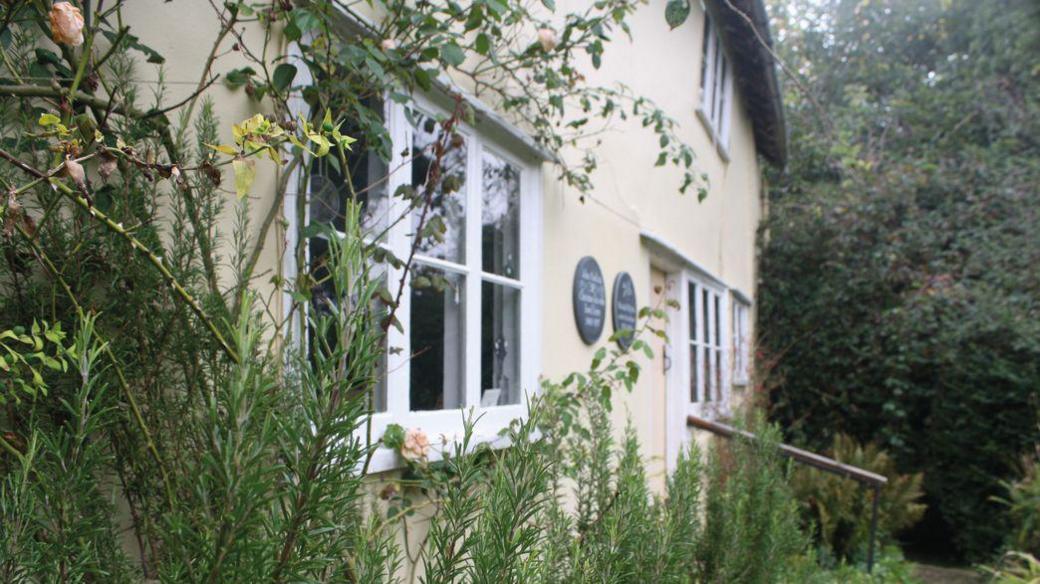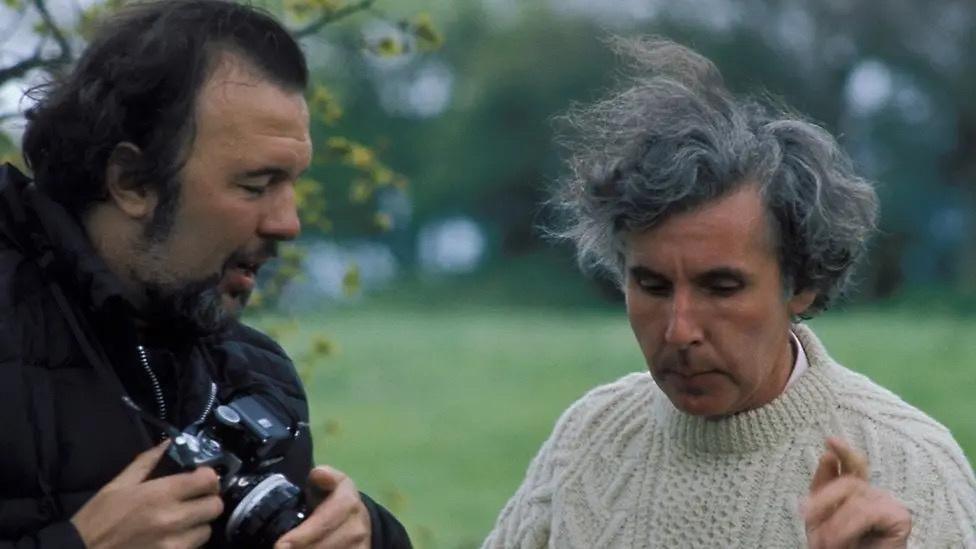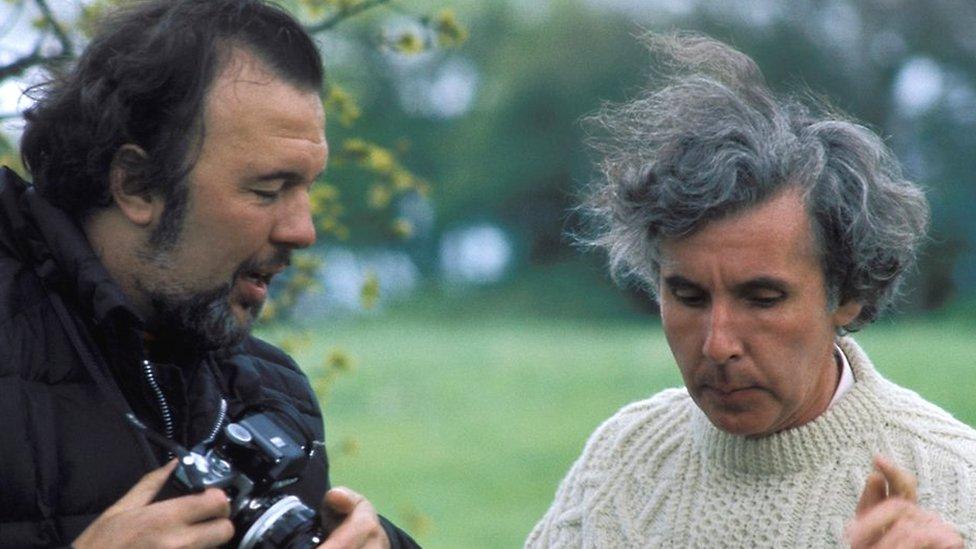Trust turns writer's former home into reserve

The author Ronald Blythe is best know for his 1969 book Akenfield
- Published
A wildlife trust has been exploring ways to turn a writer's former home into a studio and nature reserve.
Ronald Blythe - who is known for his 1969 book Akenfield, which is an account of village life in Suffolk - died aged 100 in 2023.
He left his home, Bottengoms in Wormingford, Essex, to the Essex Wildlife Trust.
The trust said Blythe's wish was for the estate to become a nature reserve and include a writer's studio.

Ronald Blythe left his home to the Essex Wildlife Trust
Trust officials said they were looking at ways to develop Blythe's "vision" and have set up an advisory group, as first reported by The Guardian, external.
The trust said the writer's 16th century yeoman farmer’s house, was given to Blythe by friends.
"Ronnie’s wish was for the estate to become a nature reserve and to include a studio to inspire writers, artists, photographers, natural historians and historians for generations to come," said the trust.
"The trust has set up an advisory group including Ronnie’s friends, the executors of his will... and literary academics to develop a vision and steward the estate in a way that fulfils Ronnie’s wishes as closely as possible."
Officials said the trust was raising funds for the project.

Sir Peter Hall (left) directed the film adaptation Akenfield with the help of Ronald Blythe (right)
The writer grew up in poverty near Sudbury, Suffolk, and educated himself by borrowing library books.
Blythe wrote more than 30 books throughout his career. He was appointed CBE in the Queen's Birthday Honours in 2017 for services to literature.
"He had this earthy Suffolk philosophy; he was immensely wise but he wore it so lightly," said friend Ian Collins, after his death.
"Being with Ronnie Blythe in one of his books is like being on a magic carpet - the exhilaration of being alive, and of nature and the world and what people have done, all the good things."
Sir Peter Hall's directed a 1974 film adaptation of Akenfield.
Get in touch
Do you have a story suggestion for Essex?
Follow Essex news on BBC Sounds, Facebook, external, Instagram, external and X, external.
Related topics
- Published16 January 2023
